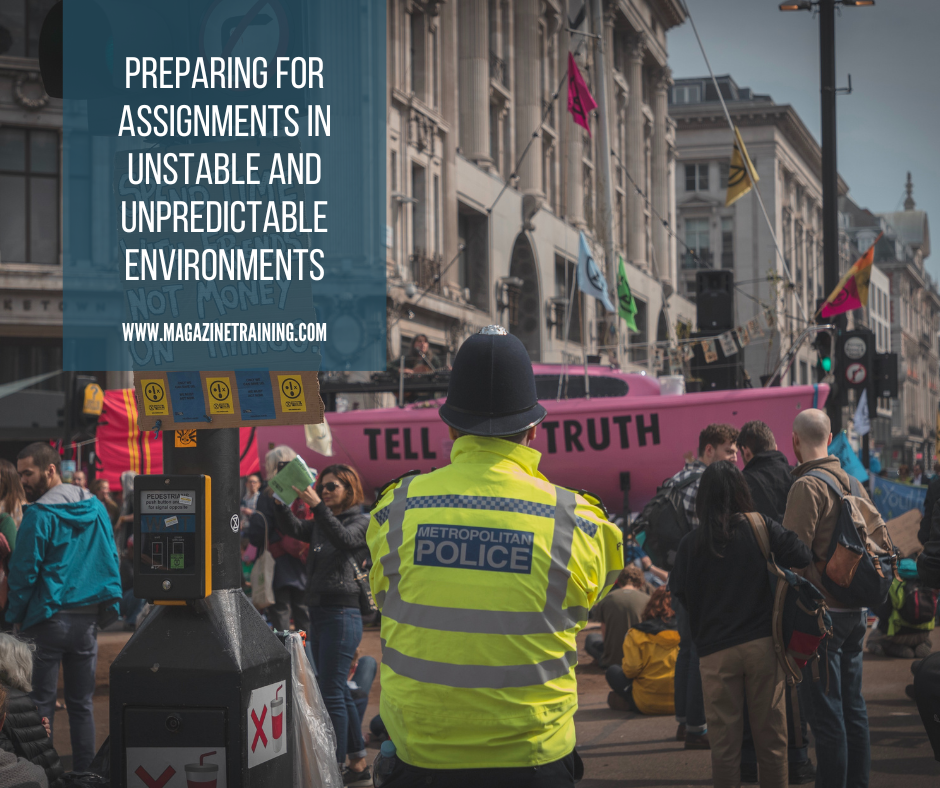
It goes without saying that any journalist going on assignment in an unstable or unpredictable environment should do their homework. Packing the right supplies and equipment, having appropriate documentation, and understanding the political and cultural terrain as well as relevant local and international law are essential elements of preparation.
With this in mind, the following 10 tips draw upon decades of experience from the Dart Centre Asia Pacific team, especially those who have deployed to conflict, war, and disaster-ravaged zones around the world. These tips are intended to be general in nature. There may be instances where specific professional advice is required.
1. Do your reasearch
Make sure you know as much as possible about the location of the assignment before you arrive. This includes understanding the local culture, customs and language. Also make sure you have packed appropriate clothing for local cultural norms and climate. Familiarise yourself with detailed maps of the areas you will visit. Identify places where you may take emergency sanctuary – e.g., churches, mosques, hospitals – should things take a sudden, dangerous turn.
It is vital to be aware of the current political and safety climates as well as any specific risks involved. A good resource to begin with is the CIA World fact book (https://www.cia.gov/the-world-factbook) which profiles every nation in the world. In Australia, the federal government’s SmartTraveller website (https://www.smartraveller.gov.au/destinations) rates every country’s current safety level.
If available to you, be sure to consult with in-house or industry safety and security experts before heading into a known conflict zone.
Well ahead of time, consider any diseases that may be prevalent where you may travel – e.g., malaria is endemic in many countries (https://www.cdc.gov/malaria/about/distribution.html), so you would need to take preventative medication ahead of time as well as during your travel – and you will need to have relevant vaccinations up to date.
In Australia, the Travel Doctor (https://www.traveldoctor.com.au) is a good resource for both current health alerts and vaccinations required. It also lists GP clinics that specialise in this field.
PRO TIP:
2. Have no expectations
Especially in conflict zones and in the aftermath of natural disasters, do not assume there will be running water, electricity, telephones, lights, shops or pharmacies that will be open. You will need to carry all personal medications as well as a decent first aid kit.
Water quality is often an issue in disaster and conflict zones. A helpful item to always have at hand is a battery-operated, portable water purifier, such as a SteriPEN (https://youtu.be/tLiUUIcmYYQ), which uses UV light to kill bacteria, protozoa and viruses within a couple of minutes. Staying hydrated, even in a cold climate, will enable you to focus on your work.
If you know access to power is likely to be an issue, beyond simply depending on a power bank to charge your phone or tablet for a couple of days, you may want to invest in a portable solar power panel array (https://youtu.be/HckH4TwW_yU). There are many on the market. This particular one (https://www.amazon.com/BigBlue-Foldable-Waterproof-SunPower-Cellphones/dp/B01EXWCPLC/?tag=travellersworldwide-20&th=1) is compact, lightweight and retails for around $US100. But there are others on the market.
Remember, if you prepare for a worst-case scenario, you will encounter fewer problems.
PRO TIP:
Women should carry their own supply of personal hygiene products and not expect to be able to access these. In conflict and disaster areas especially, shops are usually closed and, if not, there is no guarantee there will be stock on the shelves.
3. Have documentation ready
Keep copies handy of any documents provided by your employer or the media organisation for which you are freelancing, along with any accompanying letter or government documents supporting your reasons for being in the country/conflict zone/disaster locations. You may need to present these to officials as you move about. A list of who to contact in an emergency is also wise.
by Helen Zahos, Erin Smith, Amantha Perera, Trina McLellan, Dart Center for Journalism and Trauama
Photo by Joël de Vriend on Unsplash
Related posts
Magazine Training International’s mission is to encourage, strengthen, and provide training and resources to Christian magazine publishers as they seek to build the church and reach their societies for Christ.

